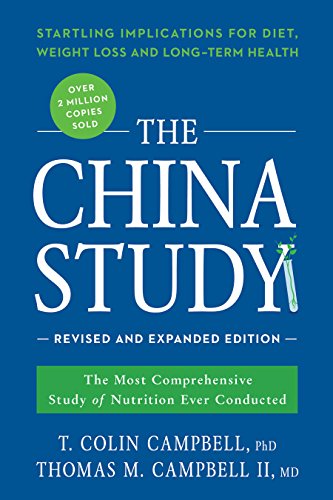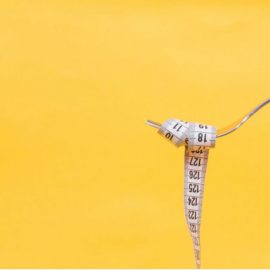

This article is an excerpt from the Shortform summary of "The China Study" by Colin Campbell. Shortform has the world's best summaries of books you should be reading.
Like this article? Sign up for a free trial here .
What is a whole food, plant-based diet? And why should I follow it?
The whole food, plant-based diet (also known as the WFPB diet) is a disease-prevention diet that involves eating whole plant foods and cutting out animal products.
The WFPB diet was popularized by T. Colin Campbell in his book The China Study. Learn why a whole food, plant-based diet might be right for you and get all the tips on how to make the transition.
Why Eat a Whole Food, Plant-Based Diet?
The benefits of eating a whole food, plant-based diet (WFPB diet) include:
- Losing weight
- Living a longer life
- Looking and feeling younger and more energetic
- Lowering cholesterol and blood pressure
- Reducing the need for expensive surgeries
- Reducing your risk of heart disease, cancer, diabetes, autoimmune diseases, Alzheimer’s, and osteoporosis, among other illnesses.
How to Eat a Whole Food, Plant-Based Diet
You might be convinced by the extensive data associating animal foods with disease. The problem now is imagining yourself actually giving up meat and dairy. Is this feasible? Could you really stop eating animal foods?
This guide is here to hold your hand as you start your meat-and-dairy-free journey. Although the biology of why and how the WFPB diet works is complex, eating a WFPB diet is simple: Eat unrefined plant foods and limit added salt and fats.
What to Eat
- Eat as much as you want of fruits, vegetables, legumes, mushrooms, nuts, and whole grains (this includes whole-grain bread and pasta).
- Limit refined foods (white bread, cakes, pastries, crackers), fish, and added oils (including corn, peanut, and olive oils).
- Avoid meat, poultry, dairy, and eggs.
What to Expect on the WFPB Diet: Four Discoveries
Not eating animals is such a strange idea in America that most of us don’t take it seriously. But if you try it for a month, you might be surprised by the discoveries you make. Here are some of the revelations you’ll have on the whole food, plant-based diet:
Discovery #1: Plant foods are delicious.
You may miss meat and cheese, but you’ll also discover some enticing new foods you wouldn’t have tried otherwise.
Discovery #2: It’s not as hard as you thought it would be.
Making such a huge dietary change isn’t necessarily easy, but many people—some over a period of days, some over months—find that the shift isn’t as dramatic as they expected.
Discovery #3: You feel good.
In the first month, many people lose weight and gain energy. See if you can fit in a doctor’s visit and get blood work done before and after changing your diet. Odds are, you’ll see drops in cholesterol and blood pressure that match how healthy you feel.
Discovery #4: Eating a WFPB diet is possible.
Even if it’s just for a week, you’ll know you’re capable of surviving on a diet free of animal products. From then on, you’ll see eating animals as a choice rather than a necessity. Your experience will prove that this diet isn’t just for Buddhist monks and animal rights activists. Everyone can make this diet work for them.
Four Suggestions to Ease into a WFPB Diet
Following these suggestions will help ease your transition into your whole food, plant-based diet:
Suggestion #1: In the beginning, don’t be afraid of spending money.
Cutting meat and dairy means cheaper grocery bills in the long run, but at the beginning of your WFPB diet journey, you may find that the process of trying new foods and figuring out what you like involves spending more money. This is temporary, and it’s worth it.
Suggestion #2: Eat delicious foods.
You won’t commit to a whole food, plant-based diet if you’re not interested in what you’re eating. Explore different restaurants and try new recipes to find meals that you love. Asian and Middle Eastern restaurants often offer many plant-based options. They also use spices in unique and exciting ways that will make you forget to miss the meat.
Suggestion #3: Don’t go hungry.
Even if you’re trying to lose weight, eat enough. On a WFPB diet, you’ll probably lose weight without restricting calories, and being hungry makes you vulnerable to falling back into your old eating patterns.
Suggestion #4: Eat a variety of foods.
This is critical both for getting the nutrients you need and staying interested in the whole food, plant-based diet.
Five Transition Hurdles of the WFPB Diet
The Campbells want to prepare you for some of the snags that could derail your efforts.
Hurdle #1: Upset Stomach
As your digestive system adjusts, you might not feel well. This is normal and won’t last long.
Hurdle #2: Time
Learning new recipes and finding new restaurants takes some extra time, but it’s worth it to discover meals that you truly enjoy.
Hurdle #3: Adjusting to New Restaurants and Offerings
You probably won’t be able to order your usual when eating out, and you may not be able to eat at your usual spots. This will take flexibility and the willingness to try new things.
Hurdle #4: Prejudice
A meal doesn’t seem like a real meal without meat (especially lunch and dinner). You need to overcome this bias toward meat and realize that this is a cultural assumption rather than the truth.
Hurdle #5: Lack of Support
People may feel threatened by your new focus on health. They might feel pressure to face their own unhealthy habits, which most people don’t want to do.
As you adjust to a WFPB diet, your tastes will change. You’ll lose your desire for meat and dairy. Because animal-based foods overpower other flavors and dull your tastebuds, removing them will allow you to taste your food in a whole new way.
Problems with Moderation
As a conservative response to the many extreme fad diets gaining popularity, health advocates often advise moderation. Don’t deprive yourself, they say. Change your eating habits gradually. Eat what you like, but in small amounts.
The Campbells agree that you shouldn’t obsess over your food. If a friend makes you homemade vegetable soup with chicken stalk, paired with a loaf of whole wheat bread that may or may not have egg in it, it’s ok to eat them.
But the Campbells also caution against intentionally including small amounts of animal products in your diet in the name of moderation. There are three reasons it’s best to stick to the diet completely.
Reason #1: It takes more planning and willpower to eat just a small amount of something you crave rather than cutting it out altogether. If you plan to eat just a little animal-based food, you’ll probably eat far more than you intended or is healthy for you.
Reason #2: You’ll feel more deprived if you’re focused on limiting the foods you love. Avoiding those foods instead redirects your attention to all the delicious things you can eat in abundance.
Reason #3: After a month, maybe a little longer, you’ll break your addiction to animal-based foods. If you keep eating them, even in small amounts, you’ll continue to crave them.
We don’t tell smokers who smoke a pack a day to first cut down to 15 cigarettes a day, then 10, decreasing use in small increments until they get to one cigarette a day, and then none. We tell them to quit by going cold turkey. This is actually easier, in the long run, than the gradual approach. Cutting out animal foods works the same way.
Summary of Recommendations for Beginning a Whole Food, Plant-Based Diet
- Eat as much whole, plant food as you want. Don’t go hungry.
- Spend the money, time, and energy to find plant foods that are absolutely delicious.
- Try restaurants offering choices from another part of the world.
- Eschew moderation. Try going “cold turkey” on animal products for a month.
Eating a whole food, plant-based diet may be the answer to preventing and reversing disease. Use this guide to smooth your transition into healthier eating.
———End of Preview———

Like what you just read? Read the rest of the world's best summary of "The China Study" at Shortform . Learn the book's critical concepts in 20 minutes or less .
Here's what you'll find in our full The China Study summary :
- Why animal proteins (meat, milk) might cause cancer, diabetes, and other diseases
- Why the medical institution is structured to hide the truth about disease and food
- The precise diet you'll need to eat to live longer and feel happier






